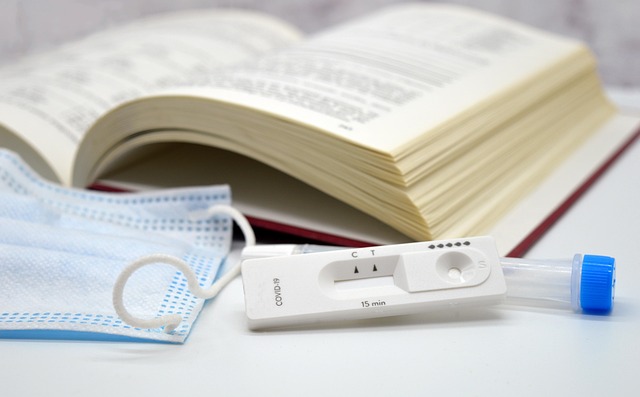Thyroid function tests, often included in standard liver blood panels in the UK, are vital for diagnosing thyroid conditions like hypothyroidism and hyperthyroidism. The comprehensive Thyroid Examination Kit includes these tests, along with manual examination tools and instructional materials. The UK Standard Liver Blood Test assesses liver health by measuring enzymes, proteins, and bile production markers, indicating potential issues like hepatitis, fatty liver disease, or jaundice. Accurate interpretation requires consultation with a healthcare provider who considers the patient's medical history and overall health.
In the UK, thyroid examinations play a crucial role in diagnosing and managing endocrine disorders. A comprehensive understanding of thyroid function tests is essential for patients navigating their health. This article delves into the key components of a standard thyroid examination kit, focusing on the UK context. We break down the process, including how to interpret results from the UK Standard Liver Blood Test, empowering patients to actively engage in their healthcare.
- Understanding Thyroid Function Tests in the UK
- Components of a Standard Thyroid Examination Kit
- How to Interpret Your UK Standard Liver Blood Test Results
Understanding Thyroid Function Tests in the UK
Thyroid function tests play a vital role in diagnosing and managing thyroid-related conditions in the UK. These tests are often included as part of a standard liver blood test, providing healthcare professionals with essential insights into the health of the thyroid gland. The most common tests measure levels of thyroxine (T4), triiodothyronine (T3), and thyroid stimulating hormone (TSH). T4 is produced by the thyroid and is the main hormone responsible for regulating metabolism, while T3 is a more active form that affects nearly every cell in the body. TSH, on the other hand, is released by the pituitary gland to control the thyroid’s activity.
In the UK, patients may undergo these tests if they present symptoms such as fatigue, weight changes, or unusual palpitations. The results of thyroid function tests can help identify hypothyroidism (low hormone levels), hyperthyroidism (high hormone levels), or other conditions like autoimmune thyroid diseases. By understanding these test results, healthcare providers can make informed decisions and recommend appropriate treatment options, ensuring optimal thyroid health for UK patients.
Components of a Standard Thyroid Examination Kit
A comprehensive Thyroid Examination Kit for UK patients typically includes a range of essential components designed to facilitate accurate diagnosis and assessment of thyroid function. At the heart of this kit is the UK Standard Liver Blood Test, which measures key markers such as TSH (Thyroid Stimulating Hormone), T3, and T4 levels in the blood. These hormones play pivotal roles in regulating metabolism and any abnormalities can indicate thyroid disorders like hypothyroidism or hyperthyroidism.
Complementing this critical test, the kit may also include tools for manual examination, such as a stethoscope to assess thyroid texture and size through auscultation, and forceps for collecting small tissue samples (fine-needle aspiration) if further investigation is required. Additionally, it may contain instructions and information brochures to guide patients on proper sample collection and preparation, ensuring the accuracy of test results.
How to Interpret Your UK Standard Liver Blood Test Results
When interpreting your UK Standard Liver Blood Test results, it’s important to understand that these tests assess various enzymes and proteins related to liver function. Elevated levels of certain enzymes, like ALT (alanine aminotransferase) and AST (aspartate aminotransferase), may indicate liver damage or inflammation. This is commonly associated with conditions such as hepatitis, fatty liver disease, or alcohol-related liver issues.
Lower than normal values for albumin, a protein produced by the liver, can suggest poor liver function or dehydration. Bilirubin levels, which are measured to assess bile production, can be elevated in cases of jaundice or certain blood disorders. It’s crucial to discuss these results with your healthcare provider who can help interpret them based on your medical history and overall health.
In summary, understanding thyroid function tests and interpreting UK Standard Liver Blood Test results is essential for patients to actively manage their health. By familiarizing themselves with these processes, individuals can better navigate their healthcare journey, ensuring timely diagnosis and effective treatment of thyroid-related conditions in the UK.
